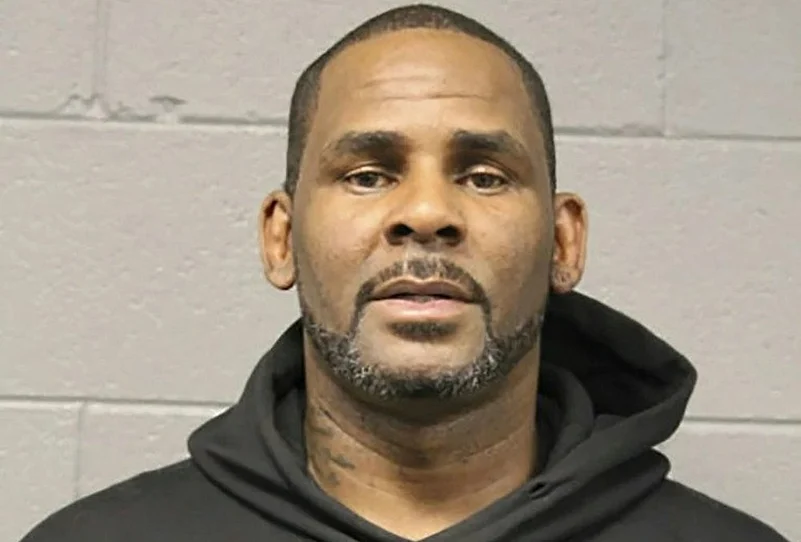The R&B superstar known for his anthem ‘I Believe I Can Fly’, R Kelly, was convicted in a sex trafficking trial after decades of avoiding criminal responsibility for numerous allegations of misconduct with young women and children, on Monday. He was also convicted of criminal counts accusing him of violating the Mann Act, which makes it illegal to take anyone across state lines “for any immoral purpose.”
“To the victims in this case, your voices were heard and justice was finally served,” Acting US Attorney Jacquelyn Kasulis said.
Kelly faces up to 20 years in prison. Sentencing is scheduled for May 4.
Advertisement
A jury of seven men and five women found Kelly, 54, guilty of all nine counts, including racketeering, on their second day of deliberations. Kelly, wearing a face mask, remained motionless, eyes downcast as the verdict was read in federal court in Brooklyn.
Prosecutors alleged that the entourage of managers and aides who helped Kelly meet girls — and keep them obedient and quiet — amounted to a criminal enterprise. Two people have been charged with Kelly in a separate federal case that's pending in Chicago.
Peter Fitzhugh, a Homeland Security investigations agent, said the verdict brought an end to Kelly's “decade-long reign of terror over many vulnerable girls, boys and young women.”
Advertisement
Several accusers testified in lurid detail during the trial, alleging that Kelly subjected them to perverse and sadistic whims when they were underage. Gloria Allred, a lawyer for some of Kelly's accusers, said that of all the predators she's gone after — a list including Harvey Weinstein and Jeffrey Epstein — “Mr. Kelly is the worst.”
“R. Kelly thought that he could get away with all of this, but he didn't," Allred said outside the courthouse. “Despite the fact that he thought he could control all this, he was wrong.”
For years, the public and news media seemed to be more amused than horrified by allegations of inappropriate relationships with minors, starting with Kelly's illegal marriage to the R&B phenom Aaliyah in 1994 when she was just 15.
His records and concert tickets kept selling. Other artists continued to record his songs, even after he was arrested in 2002 and accused of making a recording of himself sexually abusing and urinating on a 14-year-old girl.
Widespread public condemnation didn't come until a widely watched docuseries ‘Surviving R. Kelly’ helped make his case a signifier of the #MeToo era, and gave voice to accusers who wondered if their stories were previously ignored because they were Black women.
At the trial, several of Kelly's accusers testified without using their real names to protect their privacy and prevent possible harassment by the singer's fans. Jurors were shown homemade videos of Kelly engaging in sex acts that prosecutors said were not consensual.
Advertisement
Assistant US Attorney Maria Cruz Melendez argued that Kelly was a serial abuser who “maintained control over these victims using every trick in the predator handbook.”
The defense labeled the accusers “groupies” and “stalkers.” Kelly lawyer Deveraux Cannick said he was disappointed by the verdict. “I think I'm even more disappointed the government brought the case in the first place given all the inconsistencies,” Cannick said.
Cannick also questioned why the alleged victims stayed in relationships with Kelly if they thought they were being exploited. “You made a choice,” Cannick told one woman who testified, adding, “You participated of your own will.”
Advertisement
Kelly, born Robert Sylvester Kelly, has been jailed without bail since in 2019. The trial was delayed by the coronavirus pandemic and Kelly's last-minute shakeup of his legal team.
When it finally started on August 18, prosecutors painted the singer as a pampered man-child and control freak. His accusers said they were under orders to call him “Daddy,” expected to jump and kiss him anytime he walked into a room, and to cheer only for him when he played pickup basketball games in which they said he was a ball hog.
The accusers alleged that they also were ordered to sign nondisclosure forms and were subjected to threats and punishments such as violent spankings if they broke what one referred to as “Rob's rules.” Some said they believed the videotapes he shot of them having sex would be used against them if they exposed what was happening.
Advertisement
(With Inputs From PTI)




















